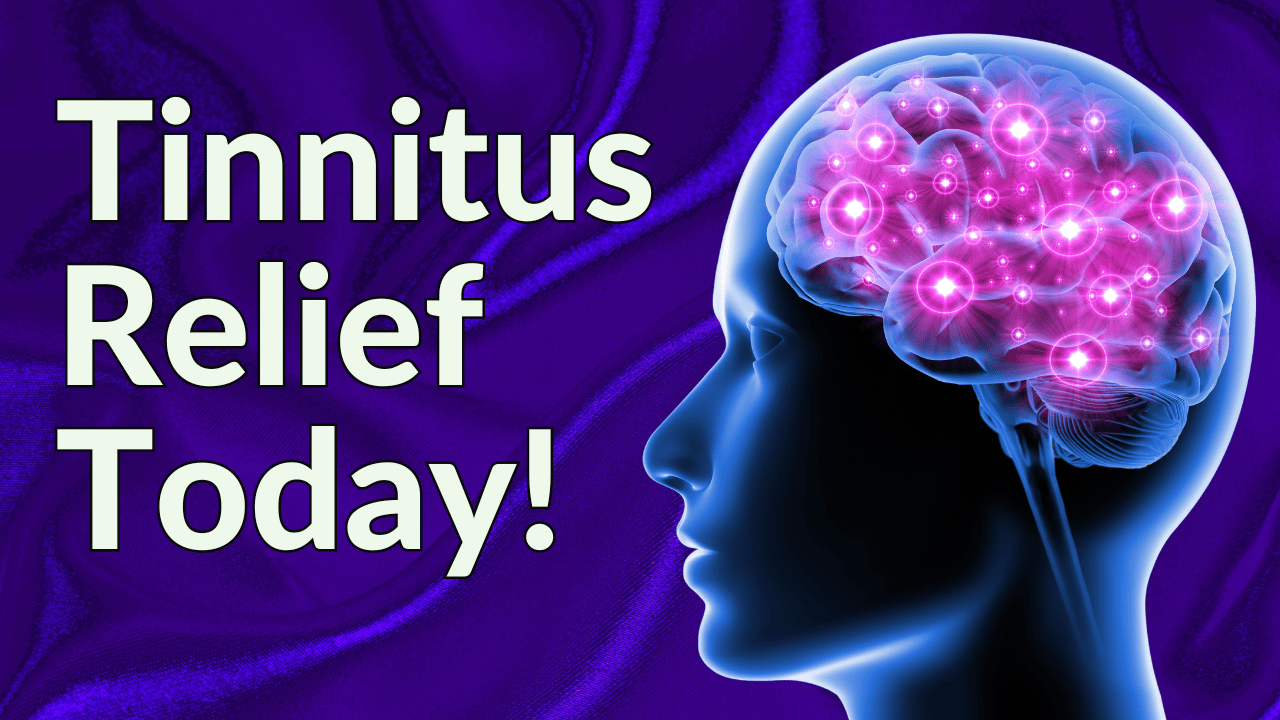Tinnitus is an invisible condition as (generally), nobody else can hear what you hear. This can often lead to those with tinnitus feeling isolated, as it can seem as if you’re the only one experiencing tinnitus in a world full of people.
However, tinnitus is very common. It’s not often discussed in social circles, but almost everyone has experienced the sensation at least once, and bothersome tinnitus affects about 20-25% of the general adult population in the United States.
For this reason, people experiencing tinnitus might be surprised to see that they are not the only ones seeking help from a community of their peers, as tinnitus support groups gain popularity both in person and online. Support groups provide a community for people with tinnitus and provide a space to discuss their experience with others who truly understand what life with tinnitus is like.
Resources like tinnitus support groups and other communities can be helpful for your overall quality of life, so let’s explore the ways these resources can help – and understand when it’s time to step away.
What Is Tinnitus?
Tinnitus varies from person to person, and is defined as the perception of sound without an external source. It can be heard in one or both ears, and most people describe it as a ringing, buzzing, hissing, clicking, or other sounds. It can fluctuate in volume from soft to very loud, and this intensity can be affected by factors such as your stress and anxiety levels throughout the day.
"Treble Health helped me reduce my tinnitus by about 80%, and now I can live my life again!"


"Treble Health helped me reduce my tinnitus by about 80%, and now I can live my life again!"
– Steve D.
Book a free consultation to learn which Treble Health solution is right for you. Join Steve and thousands more who have found lasting tinnitus relief.
For some people, tinnitus symptoms are long lasting and persistent, and may even impact their quality of life. Chronic tinnitus symptoms may lead to trouble sleeping, stress, anxiety, and worsening mental health conditions. For some people, this experience feels isolating.
What Causes Tinnitus?
First, understand that tinnitus is not a disease. It’s often a symptom, but not always a sign of anything serious. It’s most often caused by changes in hearing, and in fact, as many as 90% of people with hearing loss experience tinnitus.



There are three primary types of hearing loss:
- Conductive hearing loss. A loss of sound transmission through the outer and/or middle ear can cause conductive hearing loss. Infections like otitis externa (swimmer’s ear), otitis media, or conditions like otosclerosis and cholesteatoma can lead to this type of hearing loss.
- Sensorineural hearing loss. Sensorineural hearing loss can change the way you perceive sound and understand speech. It can be caused by factors such as exposure to loud noises, age-related hearing loss (presbycusis), acoustic neuroma, or sudden sensorineural hearing loss (SSNHL).
- Mixed hearing loss. You may also experience a combination of conductive and sensorineural hearing loss, leading to tinnitus.
Other causes of tinnitus include:
- Head injury
- Neck injury
- Medications and ototoxic exposures
- Hypertension (high blood pressure)
- Diabetes
- Kidney disease
- Meniere’s disease
- Autoimmune disorders
- Illness, allergies, and infection
How Is Tinnitus Treated?
Although there is no cure or medication for tinnitus, there are ways to understand and treat your condition.
A comprehensive approach is the most effective tinnitus treatment, and you should begin by speaking with your doctor. Your audiologist, primary care physician, or otolaryngologist (ear, nose, and throat doctor) can diagnose tinnitus and help you find the most likely cause.
Your doctor may score your tinnitus using the Tinnitus Handicap Inventory or Tinnitus Functional Index questionnaires to objectively assess how much these phantom sounds impact your life. Your doctor may even use tinnitus assessment tests to measure how loud tinnitus seems to you. Some people find that measuring the perceived decibel level of tinnitus helps them communicate their experience with others.
After you visit your doctor, you may wish to explore treatment options. Treating tinnitus may include:
- Hearing aids. Hearing aids can correct underlying hearing loss and help restore auditory connections to the brain. They may also help mask the sounds of tinnitus, making it seem less noticeable. Modern hearing aids often have advanced technology or tinnitus maskers that are specifically designed for this.
- Tinnitus retraining therapy (TRT). The human brain is constantly learning and retraining itself in a process called neuroplasticity. Through a combination of counseling and low-level noise generators, tinnitus sufferers can use TRT to learn how to ignore the ringing in their ears.
- Cognitive behavioral therapy (CBT). Many people find that counseling helps address the emotional and psychological impact of tinnitus, develop coping strategies, and change negative thought patterns.
- Sound therapy. Sound therapy uses sound machines to produce white noise, nature sounds, or even music to reduce the contrast between tinnitus and ambient sounds and help make tinnitus seem quieter.
Some people have success with other techniques like supplements, alternative therapies, and relaxation techniques for stress management. Tinnitus research is still ongoing, so it’s worthwhile to explore a wide variety of methods as a treatment for tinnitus.
How Could Having A Tinnitus Community Be Helpful?



Joining a tinnitus community or support group can provide a valuable sense of belonging. Through open discussions and a free exchange of experiences and ideas, you can gain support, knowledge, and practical tips. Having a safe space where you can feel understood, be heard, and learn how to cope with your experience can be key to finding peace with your symptoms.
Reduce Stress
Sometimes tinnitus is part of a vicious cycle. It’s common for the persistent sound of tinnitus to cause or worsen anxiety and stress, and when tinnitus becomes noticeable, the auditory system, limbic system, and autonomic nervous systems all respond. This can lead to subconscious feelings of uneasiness or even fear, leading to increased depression and anxiety and in turn, making tinnitus worse. Simply knowing that you’re not alone in this experience can help ease the emotional and mental burden of tinnitus.
Feel Understood
Bothersome tinnitus sounds can make you feel distracted, agitated, annoyed, and not in control of your health. Sadly, it’s common for friends and family not to understand or relate to your experience. Some people who have never experienced bothersome tinnitus may not take it seriously. It is not helpful when people brush your feelings aside and say things like, “just ignore it.” This can worsen the vicious cycle of stress and tinnitus.
This may make you feel alone in your experience, but by joining a support group or tinnitus community, you can meet other people who really “get” what it means to live with chronic tinnitus.
Get Useful Advice
A tinnitus community can be a valuable hub for learning and exploring treatments for tinnitus. Remember that everyone’s experience with tinnitus is different, and what works for one person may not work for another. By openly discussing your experience with others, you may discover some new tinnitus management techniques you wouldn’t have encountered otherwise. Being part of a community can empower you to try new methods you might not have considered.
How Do I Find A Tinnitus Community?



Many support groups meet in person, while others meet virtually. Some online options are more like message boards, which can be convenient if you are looking for specific information.
With social media on the rise, there are many platforms where you can find a tinnitus community just by searching the words “Tinnitus Support Group.” However, it’s important to be selective about the group you choose. Without the right moderators or guidelines, some of these groups can become very negative, focusing on the doom and gloom of life with a chronic condition. Creating a positive safe space for tinnitus patients is key to finding hope and techniques to help you cope with tinnitus.
We recommend seeking out groups that are recommended by organizations like the American Tinnitus Association (ATA). You can find a list of groups nationwide by visiting their website: https://www.ata.org/your-support-network/find-a-support-group/
Once I Join A Tinnitus Community, Am I Part Of It Forever?
Joining a community doesn’t necessarily mean you’re part of it for life, and it doesn’t mean you can’t move past tinnitus. Most tinnitus sufferers consider their community or support group as just one of the first stops on their tinnitus journey.
Once you begin the process of seeking out a professional like an audiologist or otolaryngologist for diagnosis and decide on your preferred treatment for tinnitus, you may not need to spend as much time with your support group. A professional who understands your condition, your feelings and experience, and is trained to help you treat your condition can provide targeted counseling and give you the hope you need for improved quality of life.
With the support of a community and trained medical professionals, you can discover an effective treatment to get relief and find silence again.
Next Step: Book Free Consultation
- 75% of patients reduced their tinnitus within three months after following our recommendations.
- "I feel like Treble Health literally gave me my life back." - Randy S. (verified customer)
- Join thousands of people who have reduced their tinnitus after scheduling a free consultation.




















